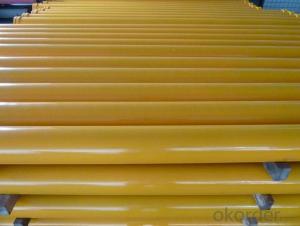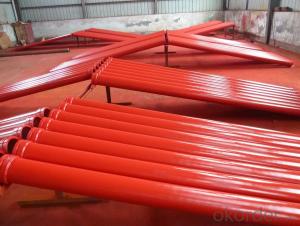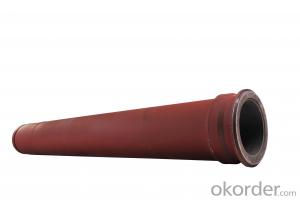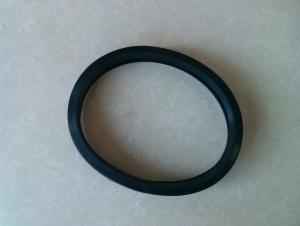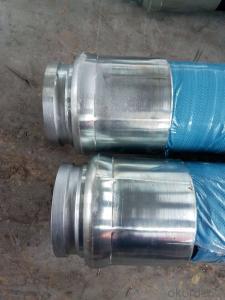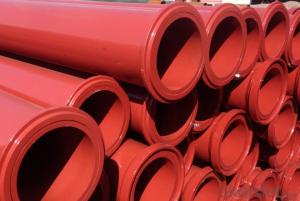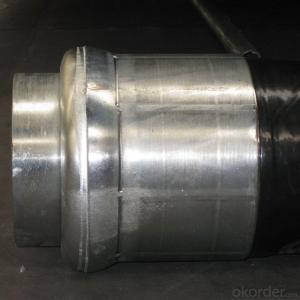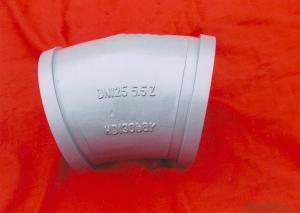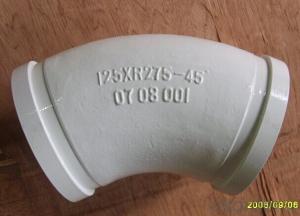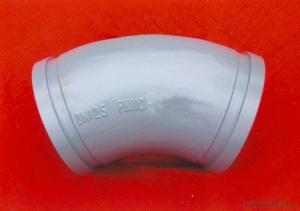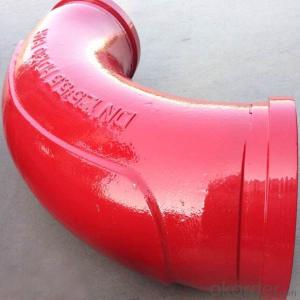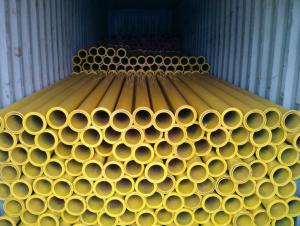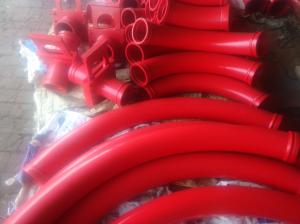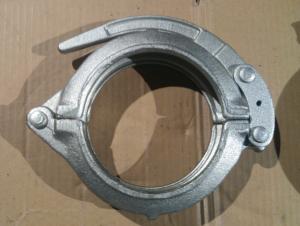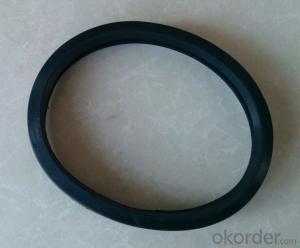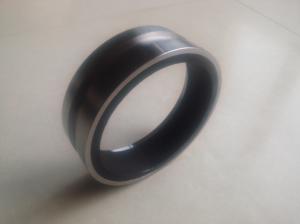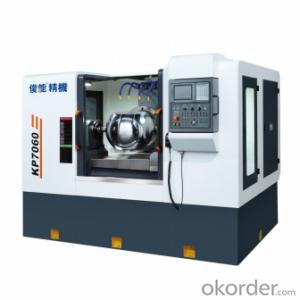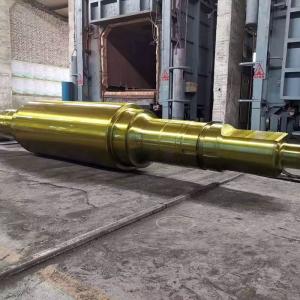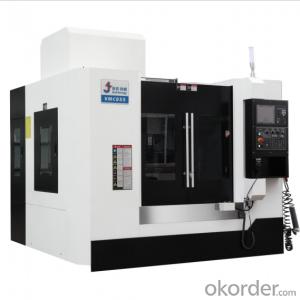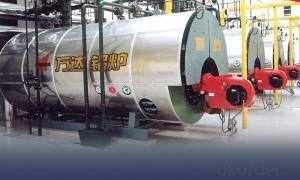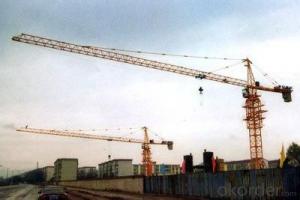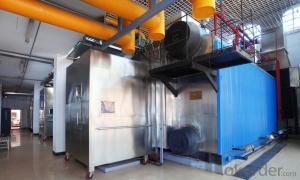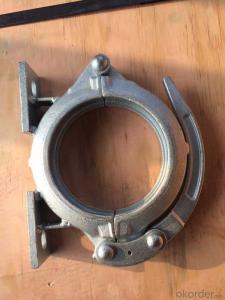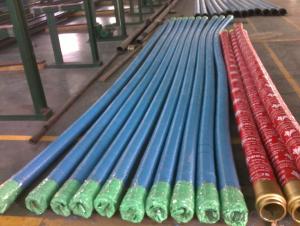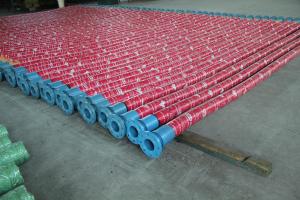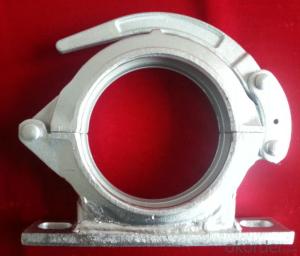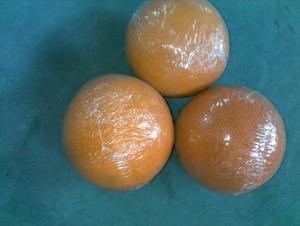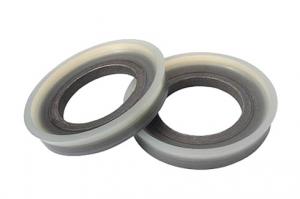Twin Wall Pipe for Concrete Pump Pipe Thickness 7mm Length 1000mm
- Loading Port:
- Tianjin
- Payment Terms:
- TT or LC
- Min Order Qty:
- 50 pc
- Supply Capability:
- 2000 pc/month
OKorder Service Pledge
OKorder Financial Service
You Might Also Like
Product Description:
Product Name: Twin Wall Pipe for Concrete Pump Pipe Thickness 7mm Length 1000mm
Specification
Diameter: DN125
Wall thickness: inner wall is 4 mm 65Mn, outer wall is 3mm seamless steel
Length: 3000&2000&1000mm with wear resistant SK flange
Type: Double / twin wall
Hardness: HRC 63
Using life: 60,000-100,000(CBM)
Highlights: longest using life
Welding: Smooth welding between straight pipes and flanges
Color : as customer's requirement,usually bule or red
Surface: Electrostatic Spraying Epoxy Paint
3. Application
Concrete delivery.
4. Package
Put into containers.
FAQ:
Q1: Why buy Materials & Equipment from OKorder.com?
A1: All products have its ISO certifications, adheres to the highest standards and a commitment to supply chain safety and customer satisfaction.
Q2: How do we guarantee the quality of our products?
A2: We have established an advanced quality management system which conducts strict quality tests at every step, from raw materials to the final product. At the same time, we provide extensive follow-up service assurances as required.
Q3: How soon can we receive the product after purchase?
A3: Within three days of placing an order, we will begin production. The specific shipping date is dependent upon international and government factors, but is typically 10 to 30 workdays.
Q4: If we can produce Twin Wall Pipe for Concrete Pump Pipe Thickness 4.5mm Length 3000mm according to customers request?
A4: Yes, we can produce T Twin Wall Pipe for Concrete Pump Pipe Thickness 4.5mm Length 3000mm according to the difference country situations to make it suitable to the market and customers. We have very professional technical team to make the design.
Q5: How to make a quick resolution for after service?
A5: We have overseas branches all-around of world, If needed, the seller shall dispatch 2 engineers to the buyer's site for supervision of training. The buyer shall make available of necessary facilities &skilled personnel at site for training.
Images:
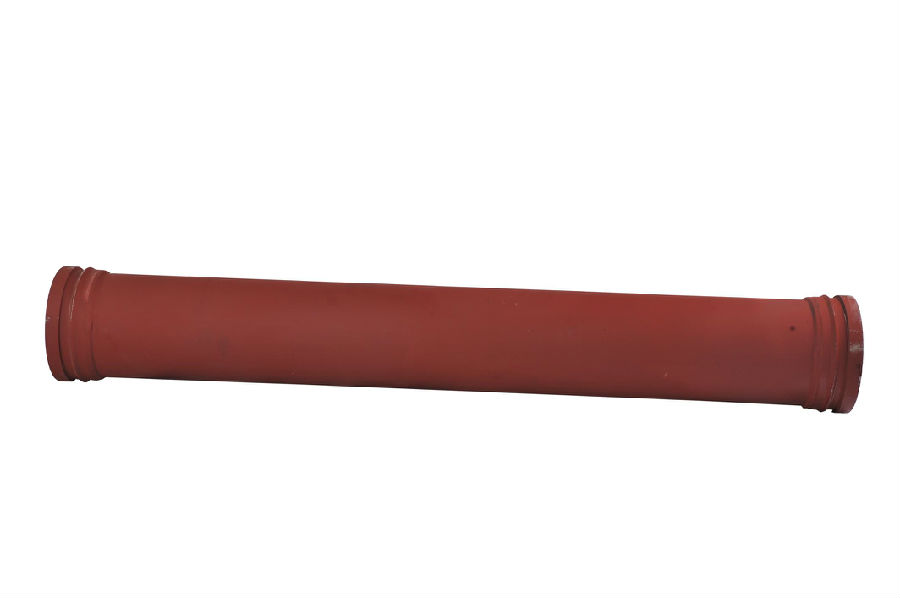
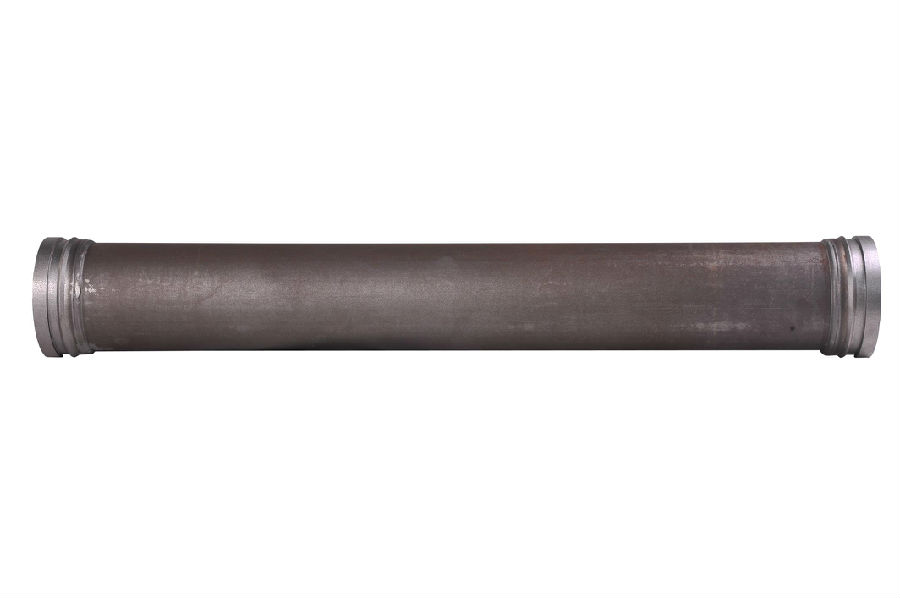
- Q:Can concrete pump spare parts be purchased online?
- Indeed, online purchases of concrete pump spare parts are possible. Numerous online platforms and websites cater specifically to the sale of construction equipment and spare parts, including those for concrete pumps. These digital stores present a comprehensive assortment of options and brands, enabling customers to peruse and choose the precise spare parts required for their concrete pump. Moreover, online buying grants the convenience of price comparison, perusal of customer reviews, and doorstep delivery of the spare parts. Nevertheless, it remains imperative to ascertain the authenticity and dependability of the online store prior to making a purchase, guaranteeing the acquisition of genuine and top-notch spare parts.
- Q:Are there any specific regulations or standards for the labeling and packaging of concrete pump spare parts?
- Yes, there are specific regulations and standards for the labeling and packaging of concrete pump spare parts. These regulations ensure that the parts are properly identified, labeled, and packaged for safety, transportation, and ease of use. They may include requirements for clear identification of the part, its manufacturer, dimensions, and any necessary warnings or instructions. Additionally, packaging standards may specify the use of suitable materials to protect the spare parts from damage during shipping and storage.
- Q:What are the indications of a faulty control lever?
- There are several indications that can suggest a faulty control lever. First and foremost, if the control lever is not responding or is sluggish when you try to engage or disengage a specific function, it could be a sign of a problem. This could include difficulty shifting gears, adjusting speed, or operating various controls such as the throttle or clutch. Another indication of a faulty control lever is if it becomes loose or wobbly. If you notice excessive play or movement in the lever, it could indicate that the mechanism connecting the lever to the control system is worn out or damaged. This can compromise the accuracy and precision of the control lever, making it difficult to operate the intended functions effectively. Additionally, unusual noises or vibrations coming from the control lever can be a sign of a fault. This could be a result of loose or broken components within the control lever assembly, indicating that it needs to be inspected and repaired. Lastly, if the control lever becomes stuck or jammed in a certain position, it is a clear sign of a faulty lever. This can prevent you from properly controlling the equipment or vehicle, posing safety risks. In any case, if you suspect a faulty control lever, it is essential to have it inspected and repaired by a qualified technician to ensure proper functioning and safe operation.
- Q:Are there any specific tools required for replacing concrete pump spare parts?
- Yes, there are specific tools required for replacing concrete pump spare parts. Some of the common tools include wrenches, socket sets, screwdrivers, pliers, hammers, and pry bars. Additionally, specialized tools such as concrete pump piston pullers, gasket cutters, and sealant applicators may also be necessary depending on the specific parts being replaced. It is important to have the right tools to ensure safe and efficient replacement of concrete pump spare parts.
- Q:What are the different types of concrete pump control system sensors?
- Concrete pump control systems utilize a variety of sensors to ensure smooth and efficient operation. These sensors are specifically designed to monitor different aspects of the pump's performance and provide real-time feedback to the control system. Common types of sensors used in concrete pump control systems include: 1. Pressure Sensors: These sensors measure the concrete pressure during pumping. They are typically installed in the discharge line and are crucial in preventing over-pressurization and potential damage to the pump or pipeline. 2. Flow Sensors: Flow sensors measure the rate at which concrete flows through the system. By monitoring the volume of concrete passing through per unit of time, these sensors enable the control system to regulate the pump's speed and output accordingly. 3. Level Sensors: Level sensors monitor the concrete level in the hopper or storage tank. They provide information about the concrete volume to prevent the pump from running dry or becoming overloaded, thus preventing pump cavitation or blockages. 4. Proximity Sensors: Proximity sensors detect the position of moving parts in the pump system, such as the boom or outriggers. They ensure safe operation by providing feedback to the control system and preventing collisions or obstructions. 5. Temperature Sensors: Temperature sensors monitor the concrete mix temperature. They help maintain the desired temperature range during pumping, which is crucial for workability and curing. Optimal concrete temperature contributes to the quality of the final product. In summary, these sensors work in harmony to provide precise feedback to the control system, ensuring efficient and safe operation of the concrete pump. By continuously monitoring and adjusting various parameters, these sensors optimize pumping performance and enhance productivity in concrete placement projects.
- Q:How often should concrete pump hydraulic motors be inspected and replaced?
- The inspection and replacement frequency of concrete pump hydraulic motors varies depending on several factors, including usage intensity, maintenance practices, and the specific guidelines of the manufacturer. However, as a general guideline, it is advisable to inspect hydraulic motors every 6 to 12 months. During this inspection, it is important to check for signs of wear and tear, leaks, and any abnormal noises that may occur during operation. Additionally, regular maintenance tasks like lubrication and cleaning should be carried out according to the manufacturer's recommendations. Ultimately, the decision to replace hydraulic motors should be based on their overall condition and performance. If noticeable issues or a significant decrease in efficiency are observed, it may be necessary to replace the hydraulic motors before the suggested inspection interval.
- Q:How often should wear rings be replaced in a concrete pump?
- The frequency at which wear rings should be replaced in a concrete pump depends on several factors including the type of pump, the quality of the wear rings, the volume of concrete being pumped, and the operating conditions. In general, wear rings are components that experience significant wear and tear due to the abrasive nature of concrete. As a result, they will eventually need to be replaced to maintain the pump's efficiency and prevent potential damage to other parts of the pump. Typically, wear rings should be inspected regularly during routine maintenance checks. The wear patterns and extent of damage will determine whether replacement is necessary. In some cases, wear rings may last for several thousand hours of operation, while in others, replacement may be required more frequently. It is recommended to consult the pump manufacturer for specific guidelines on wear ring replacement intervals based on the pump model and operating conditions. They may provide recommendations based on their expertise and knowledge of the pump's design and performance. Ultimately, the goal is to ensure that the concrete pump operates smoothly and efficiently, minimizing downtime and maximizing its lifespan. Regular inspections and proactive replacement of wear rings when necessary will help achieve this objective.
- Q:How long do concrete pump rubber hoses typically last?
- The lifespan of concrete pump rubber hoses may vary based on several factors. Typically, these hoses last between 5 to 10 years on average. However, factors such as hose quality, frequency and intensity of use, concrete type, and maintenance can impact this estimate. To prolong the lifespan of concrete pump rubber hoses, regular inspection and maintenance are crucial. It is important to check for signs of wear and tear, like cracks, abrasions, or bulges, and address any issues promptly. Additionally, proper storage and handling are essential to prevent unnecessary damage. Avoiding excessive bending, kinking, or dragging of the hose can greatly extend its durability. It should be noted that certain conditions, such as exposure to extreme temperatures, abrasive materials, or chemicals, can accelerate wear and reduce the hose's lifespan. Therefore, considering these factors is vital when determining the expected longevity of a concrete pump rubber hose. Ultimately, while concrete pump rubber hoses generally last 5 to 10 years, their durability and lifespan can be influenced by various factors. By practicing proper maintenance, care, and considering operating conditions, the life of the hose can be significantly extended, ensuring safe and efficient use.
- Q:Are there any warranties or guarantees on concrete pump spare parts?
- Yes, there are warranties and guarantees offered on concrete pump spare parts. Many manufacturers and suppliers provide warranties on their products to ensure the quality and performance of the spare parts. These warranties may vary in duration and coverage depending on the specific supplier or manufacturer. It is important to check with the supplier or manufacturer to understand the terms and conditions of the warranty or guarantee before purchasing the concrete pump spare parts. Additionally, some suppliers may also offer extended warranties or guarantees for an additional cost, providing further peace of mind to the customers.
- Q:How much do concrete pump spare parts typically cost?
- Several factors can influence the price of concrete pump spare parts, including the brand, type of part, and supplier. The cost can range from a few hundred dollars to several thousand dollars. Basic components like pistons, seals, and wear plates generally have lower prices, while more intricate parts like hydraulic cylinders or control boards can be more costly. Furthermore, the price can also be influenced by the quality and durability of the spare part. It is recommended to compare prices from various suppliers and take into account factors such as warranty and customer reviews before making a purchase.
1. Manufacturer Overview |
|
|---|---|
| Location | |
| Year Established | |
| Annual Output Value | |
| Main Markets | |
| Company Certifications | |
2. Manufacturer Certificates |
|
|---|---|
| a) Certification Name | |
| Range | |
| Reference | |
| Validity Period | |
3. Manufacturer Capability |
|
|---|---|
| a)Trade Capacity | |
| Nearest Port | |
| Export Percentage | |
| No.of Employees in Trade Department | |
| Language Spoken: | |
| b)Factory Information | |
| Factory Size: | |
| No. of Production Lines | |
| Contract Manufacturing | |
| Product Price Range | |
Send your message to us
Twin Wall Pipe for Concrete Pump Pipe Thickness 7mm Length 1000mm
- Loading Port:
- Tianjin
- Payment Terms:
- TT or LC
- Min Order Qty:
- 50 pc
- Supply Capability:
- 2000 pc/month
OKorder Service Pledge
OKorder Financial Service
Similar products
New products
Hot products
Related keywords
